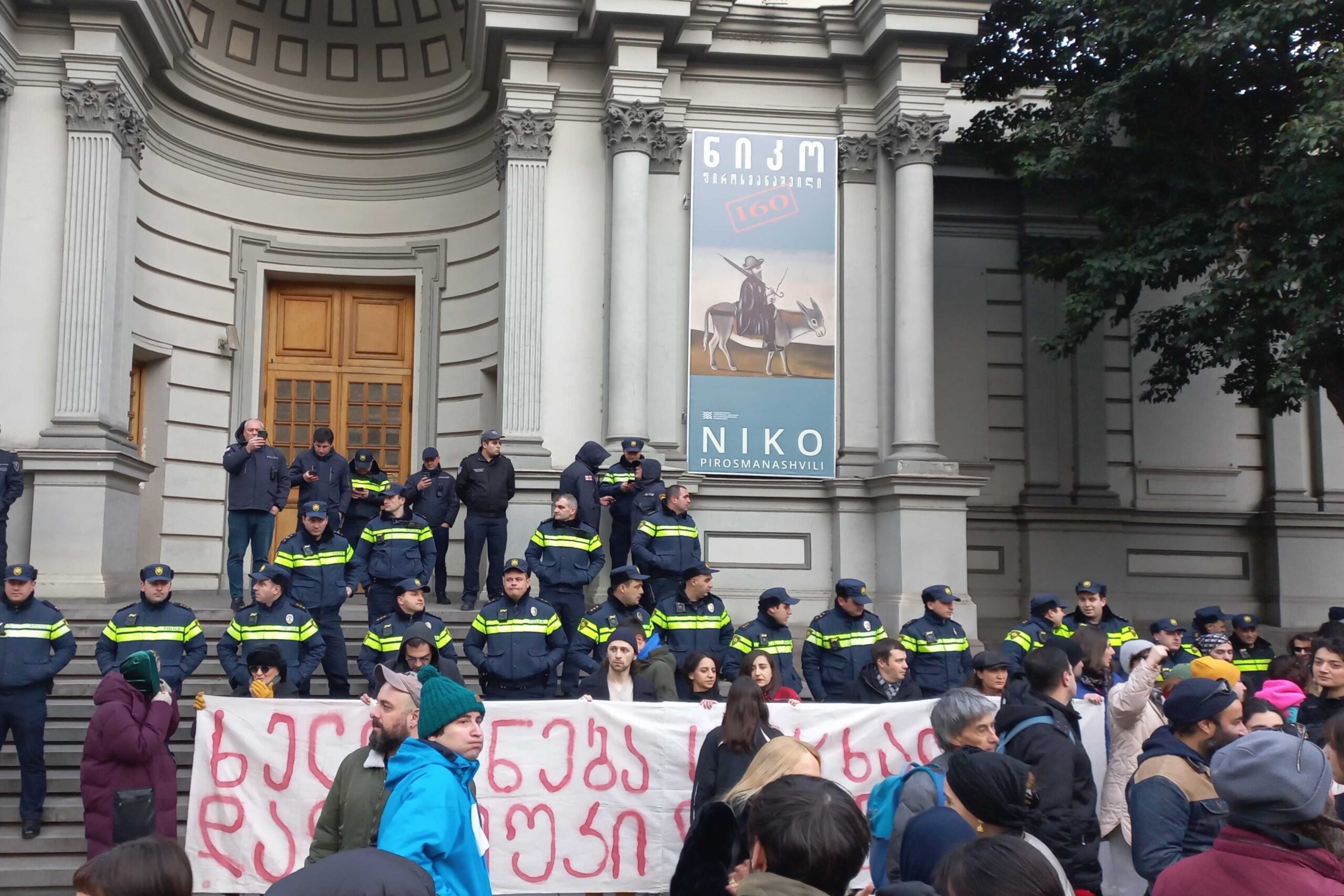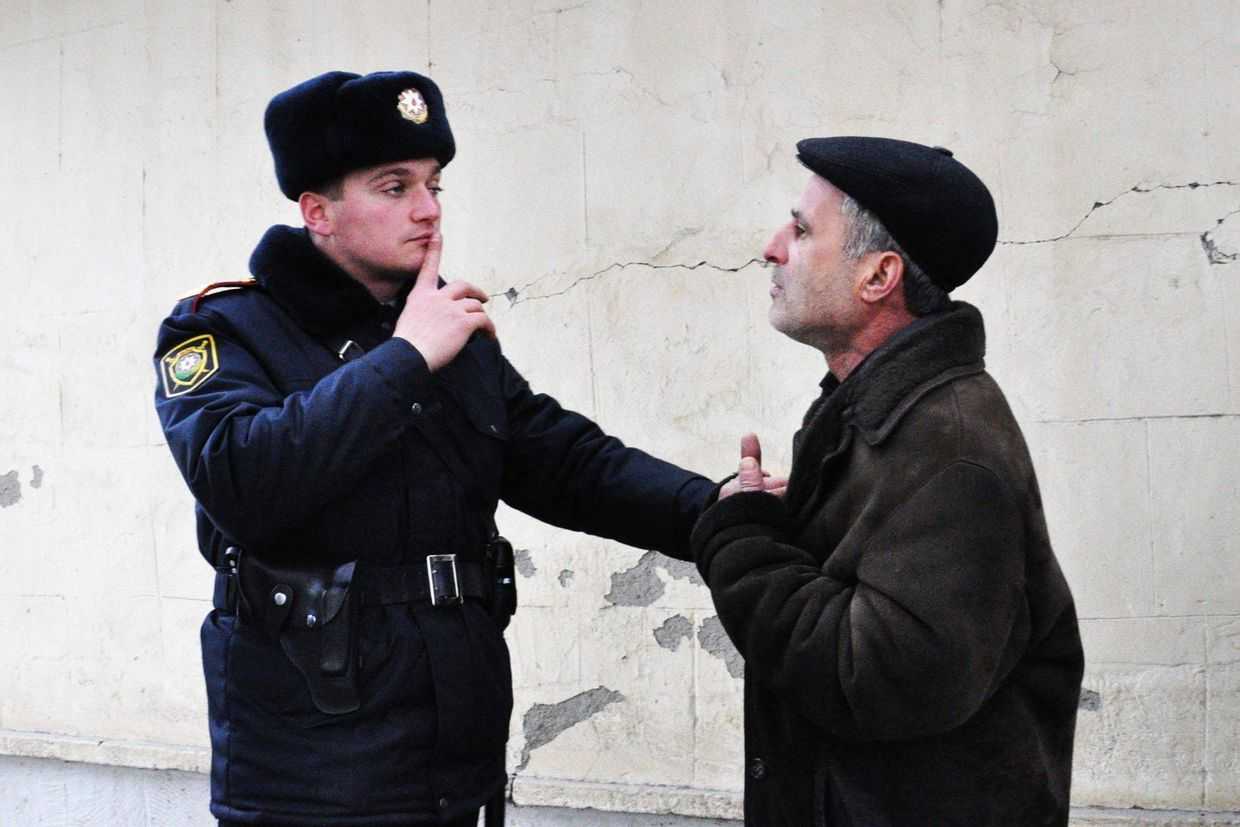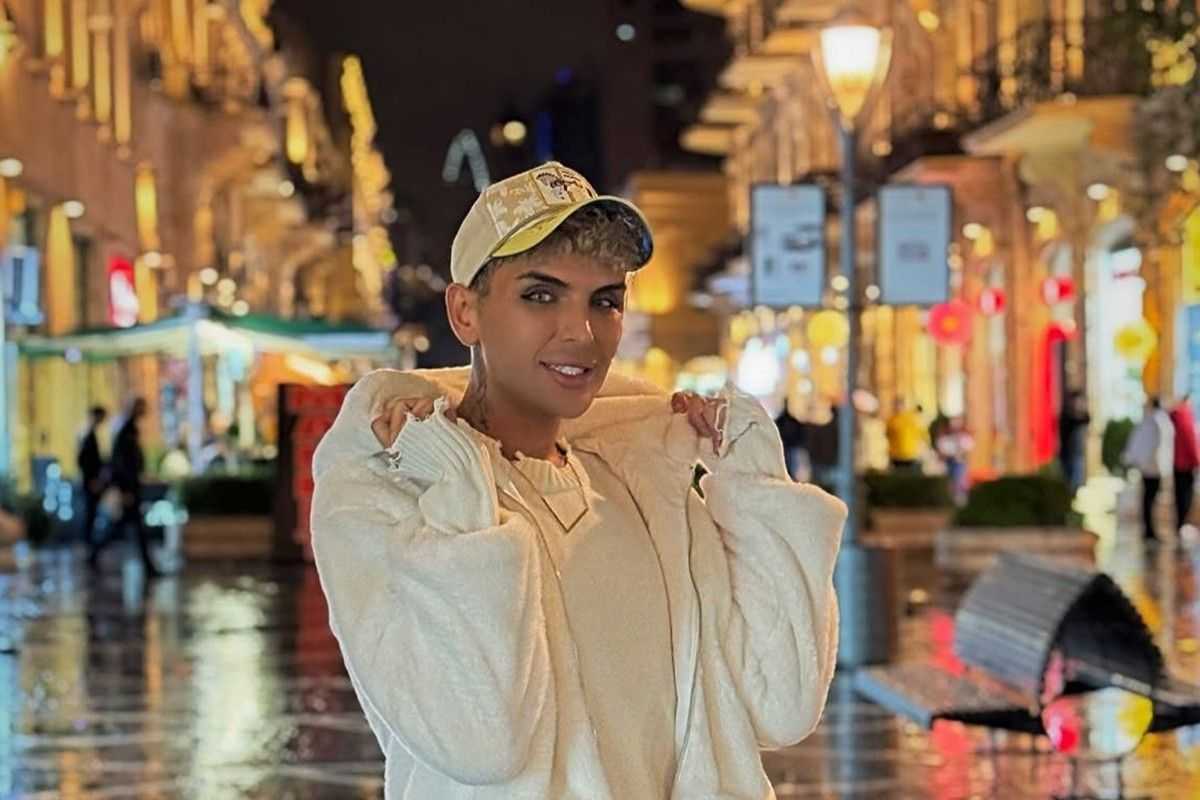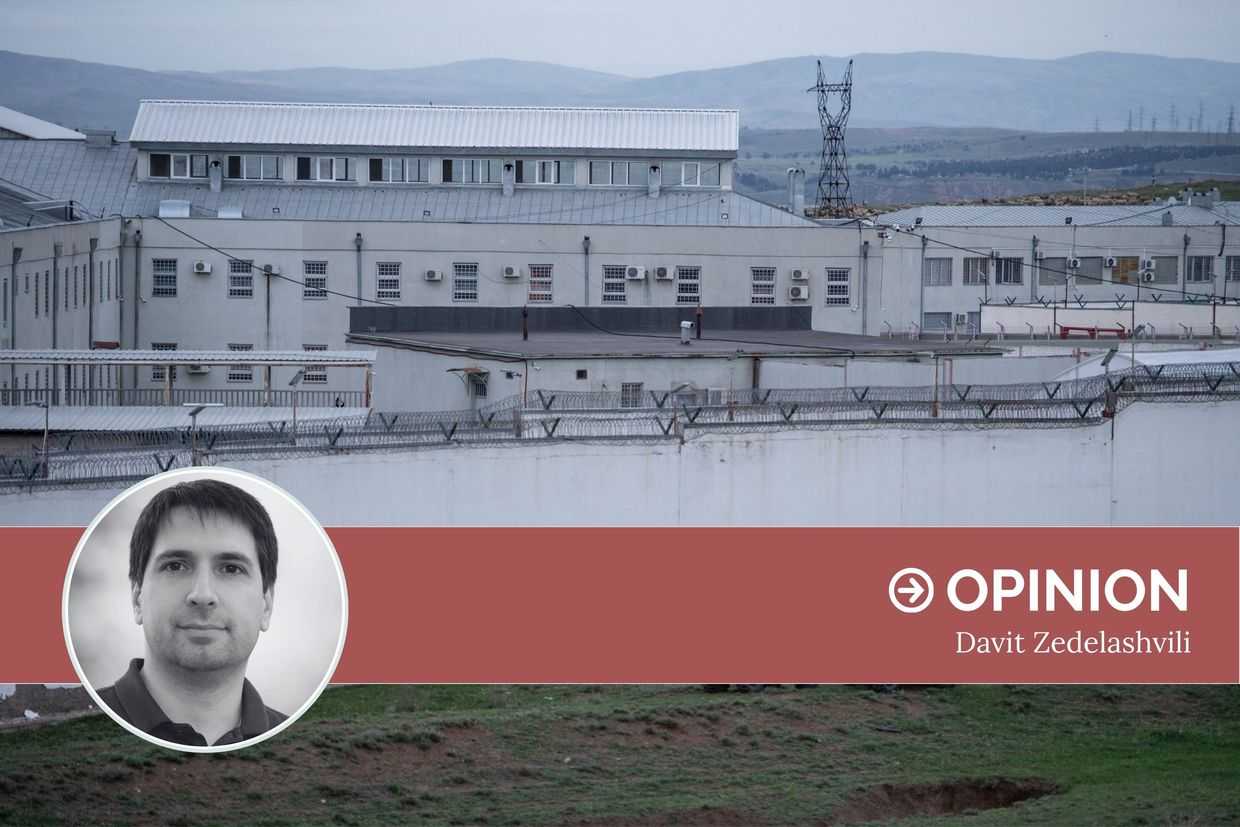‘Putinist response’: Georgian painter investigated for removing own painting from exhibition

Georgian authorities are investigating the ‘theft’ of a painting removed by its author from an exhibition in Tbilisi. Supporters of the artist have criticised the move as ‘authoritarian’, and are protesting the action.
On 4 February, artist Sandro Sulaberidze removed his painting from an exhibition at Georgia’s National Gallery, writing ‘art is alive and independent’ in its place on the wall.
The Interior Ministry confirmed to OC Media that they were investigating the incident under the criminal offence of ‘theft resulting in substantial damage’, which is punishable by up to five years in prison.
On Sunday, a few hundred people gathered outside Georgia’s National Gallery to protest the investigation and express solidarity with Sulaberidze.

Sulaberidze’s supporters, including other painters from the exhibition, have since Saturday been collecting signatures on a statement asserting that the artist did not commit a crime. They plan to submit the signed document to the Interior Ministry.
Various Georgian organisations have also spoken out against the Interior Ministry’s investigation, with writers’ union PEN Georgia describing it as a ‘repressive attack’ and ‘Putinist stunt’ from the Georgian minister for culture, Tea Tsulukiani.
‘Launching a criminal case and also an administrative probe against a painter is […] behaviour typical of Putin’s Russia and highlights that the Minister of Culture, Tea Tsulukiani, and Interior Minister Vakhtang Gomelauri, are guided by values […] incompatible with the Georgian state’.
Queer rights organisation Tbilisi Pride similarly stated that using punitive measures against artists was ‘a characteristic of authoritarian regimes’.
‘Its purpose is to stifle social protest, progress and critical thinking, homogenise public ideas, and limit diverse perspectives and freedom of expression’, the organisation added.
Ketevan Shavgulidze, a curator of the exhibition who claimed to have already been questioned by the Interior Ministry, condemned the criminal investigation into Sulaberidze. Shavgulidze noted also that she and ‘others’ were hoping for a statement from the artist, who has made no public comment since the event.
However, Aleksandra Gabunia, a representative of the National Gallery, was notably less sympathetic to the artist, describing Sulaberidze’s behaviour as ‘infantile sabotage’ and stating that she was obliged to report missing items to law enforcement agencies.
‘Due to the obligations and responsibilities I have taken before the state and society, I cannot be guided by street “understanding” ’, wrote Gabunia.
Gabunia added that she believed Sulaberidze would not be arrested, and would only face an administrative fine.
On Sunday, Georgian President Salome Zurabishvili criticised what she implied was an overreaction to the protest in Tbilisi supporting Sulaberidze, noting the heavy police presence.
‘A painter being so threatening to the state — this reminds us a bit of another era and it definitely embarrasses modern Georgia’, Zurabishvili wrote on Facebook.
The criminal investigation has been widely seen by government critics as a vindictive move by a government and ministry that they believe to be hostile to opposition media and cultural figures.
Minister of Culture Tea Tsulukiani did not face investigation after stealing a microphone from a reporter in June 2021 and keeping it for months. Some members of the ruling party in fact spoke in defence of Tsulukiani, dubbing her obstruction of a reporter a ‘political performance’









